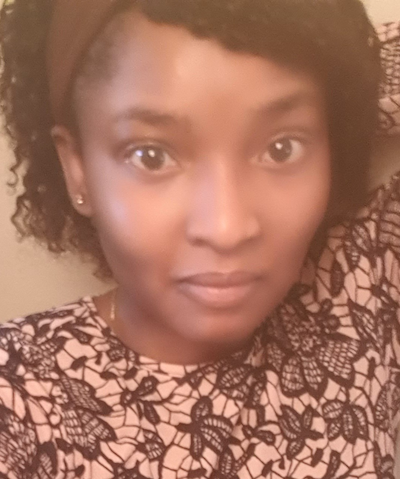19 June 2021

Adedolapo works in the Digital Services Department at Frimley Health and lives with sickle cell disease. On World Sickle Cell Day she has shared her story to raise awareness and share how she copes living with the disease.
My name is Adedolapo Adeseye and I am a sickle cell warrior. I was born in Nigeria and was first diagnosed with sickle cell disease (SCD) as an infant. My diagnosis came as a complete surprise. At the time my parents were not aware of anyone else in the family who had sickle cell disease and were frightened because they didn’t know much about the disease and how to go about taking care of me properly.
SCD is a group of inherited red blood cell disorders. It is the most common genetic disease in the UK. Over 15,000 individuals have sickle cell disease. It causes normally round and flexible blood cells to become stiff and sickle-shaped, stopping them and the oxygen they carry from moving freely around the body. This can cause episodes of severe pain, referred to as sickle cell crisis’ which are both acute and chronic in nature.
People with SCD are also at risk of complications: Stroke, acute chest syndrome, blindness and organ damage.
I have been through a real journey with SCD including several complications, but I am still here. I have been managed by Frimley Park Hospital for just under 20 years and am grateful for the care I have received. I am now also being treated at St George’s Hospital who have a range of specialists who have been able to contribute to my care.
The keep well tips which have helped me so far:
- Know your sickle cell status. I was diagnosed as an infant but quite a lot of people did not know for a long time whether they had the trait or disease until their late teens or as adults.
- Education is crucial. Educate yourself as much as you can. Don’t just believe hearsay. Get reputable information first-hand on how to effectively manage SCD. Attend conferences from experienced SCD haematologists worldwide. Always get a second opinion. One haematologist may be more experienced in the care of sickle cell patients than another as well as the types of supports available.
- Be an advocate for your own health. Be involved in healthcare decisions.
- Find your peers. It will help give you the sense that you’re not alone in this. Your mental health, in terms of depression and anxiety, makes the severity of SCD worse, so the impact is huge. Join others to advocate more and increase the awareness of sickle cell.
- Know your sickle cell triage. In other words, know which factors (for example, cold or hot weather, rain, exercise, stress etc) can trigger a sickle cell crisis that are specific to your body and adjust and manage those.
- Try to live a positive life
The only known cure to date for sickle cell disease is a matched bone marrow cell transplantation which is most likely to occur from a healthy sibling donor.
World Sickle Cell Day is recognised by the United Nations and celebrated every year on June 19. It aims to increase awareness of sickle cell disorders.

